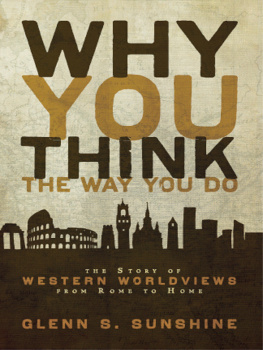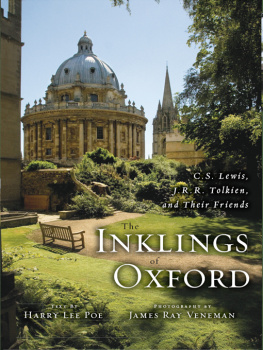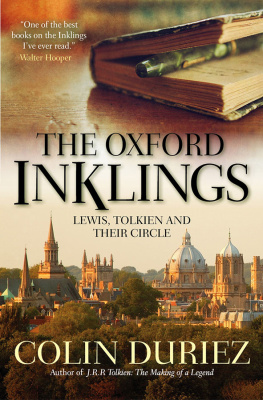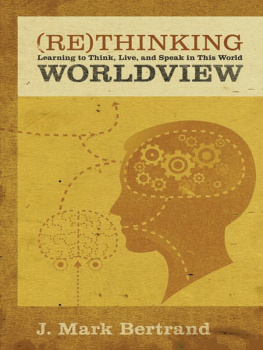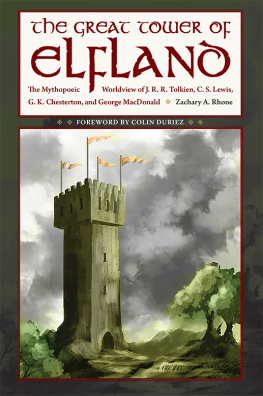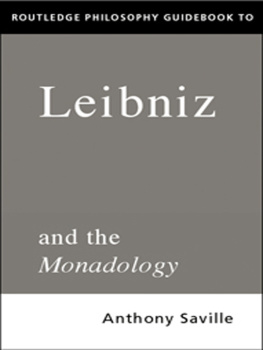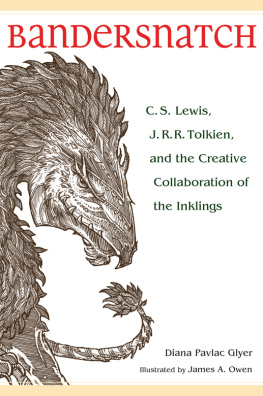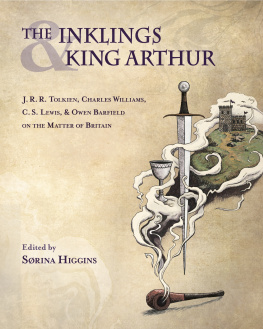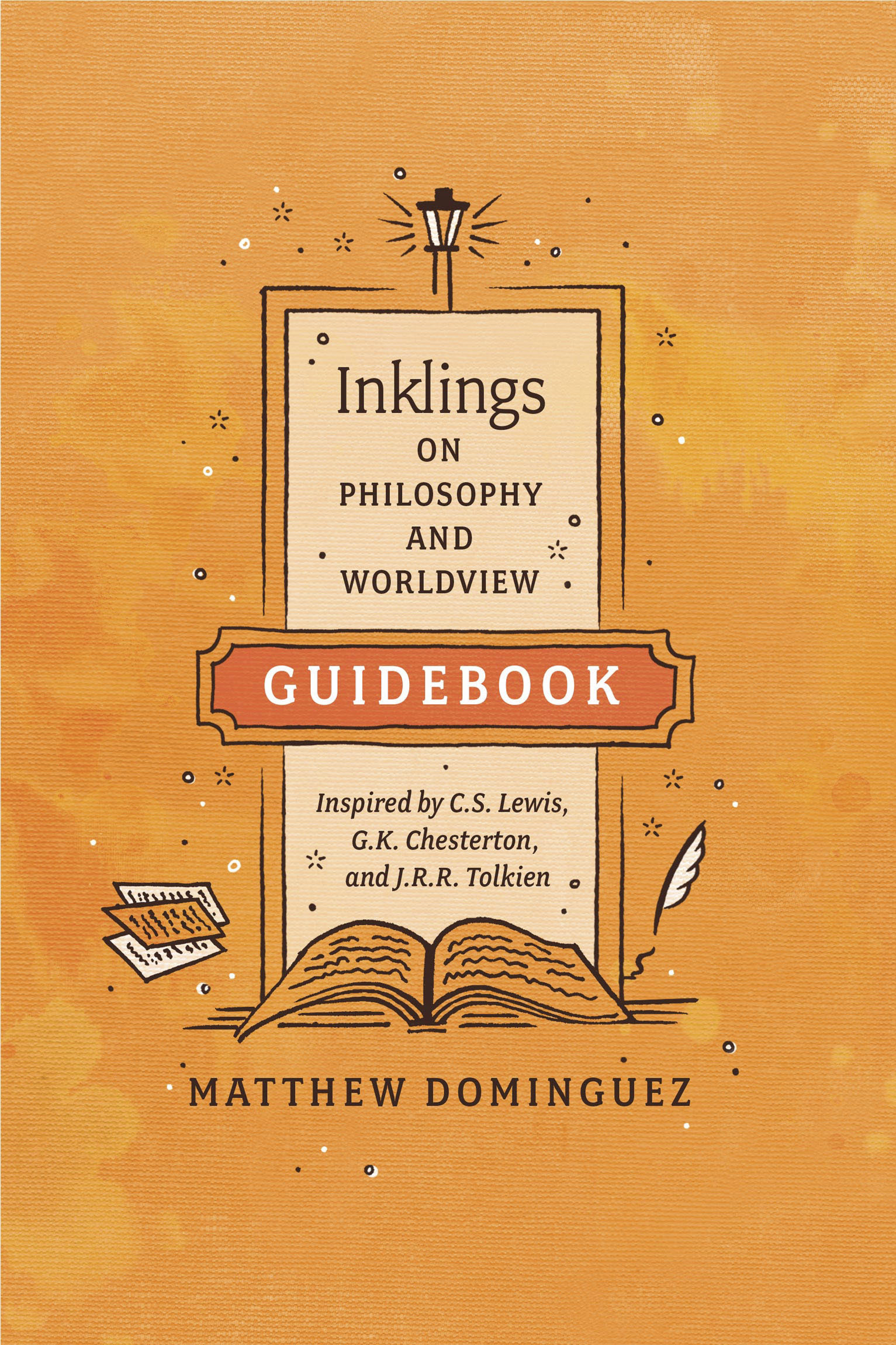Visit Tyndale online at tyndale.com.
Visit the authors website at IntheTrueMyth.org.
Tyndale and Tyndales quill logo are registered trademarks of Tyndale House Publishers.
Inklings on Philosophy and Worldview Guidebook
Copyright 2020 by Matthew Dominguez. All rights reserved.
First edition published in 2014 by WheatonPress.com. Fourth edition published in 2017 as Inklings on Philosophy, Theology, and Worldview Student Workbook by Wheaton Press under ISBN 9780692227213. Fifth edition by Tyndale House Publishers in 2020.
Cover illustration by Jen Phelps. Copyright by Tyndale House Publishers. All rights reserved.
Cover photograph of watercolor copyright bphillips/Getty Images. All rights reserved.
Designed by Jennifer Phelps
Edited by Jonathan Schindler
Unless otherwise indicated, all Scripture quotations are taken from the Holy Bible, New Living Translation, copyright 1996, 2004, 2015 by Tyndale House Foundation. Used by permission of Tyndale House Publishers, Carol Stream, Illinois 60188. All rights reserved.
Scripture quotations marked NIV are taken from the Holy Bible, New International Version, NIV. Copyright 1973, 1978, 1984, 2011 by Biblica, Inc. Used by permission. All rights reserved worldwide.
For information about special discounts for bulk purchases, please contact Tyndale House Publishers at , or call 1-855-277-9400.
ISBN 978-1-4964-2892-9
Build: 2022-08-15 12:01:04 EPUB 3.0
This companion book to Inklings on Philosophy and Worldview is meant to be used as a guidebook, like an adventure guidebook, except for the heart, soul, and mind. I have led students on rock climbing, backpacking, mountain climbing, ice climbing, and sailing adventures in various parts of our world. When I get to a gorgeous granite cliff with the hope of taking an eager group of voyagers up and down the steep facade, I always bring a professional guidebook with me. I use it to navigate the terrain, find the right spots, learn about the safety concerns, and plot out a course for the day of adventure and exploration. I also train my students in how to use the guidebook so that if they come back, they can safely and strategically lead themselves and others through the climb.
This is the conceptual framework of this book. It is meant to be a tool to help young people (and their leaders) grow on this adventure of life. Leaders must model the adventure and eventually master the material. At first the people you lead will be using the book with you as you learn the material together. However, like a repeated adventure trip to the same mountain, after several visits, the terrain and skills become more familiar and personal. The same is true for anyone using these texts and tools. After enough use, the leaders and youth applying this material will be able to eventually use it in their own way and even extend it into new learning and growth. This book and the supplemental material available on the InTheTrueMyth.org website are designed to guide you to extend your learning and process the information in the Inklings on Philosophy and Worldview book in a deeper and more practical way. The best rock-climbing guidebooks help me get to the base of the rock cliffs. When I find the climb I want to do, I then put the book down, get on my safety gear, and put my hands and feet on the actual rock and start climbing. My hope is that this guidebook gets used in a similar way.
My favorite guidebooks are annotated, drawn in, dog eared, tattered, torn, and worn with coffee stains and dirt. Similarly, when used well, this book should guide you in experiencing, interacting with, participating in, and processing the information and concepts in the Inklings book and well beyond. Guidebooks for rock climbing are designed to be used at the cliffs, to actually rock climb, but its hard to climb with a book in your hands. These books and even the information in them are tools and means to the end, not the end themselves. Philosophy needs to be more than just thinking; it needs to be doing! Paul writes to the church at Corinth, While knowledge makes us feel important, it is love that strengthens the church. Anyone who claims to know all the answers doesnt really know very much. But the person who loves God is the one whom God recognizes (1 Corinthians 8:1-3). Philosophy that is worth anything will be put to use in lives that actually live the concepts.
Training is essential. Paul refers to it often in his letters to the early churches. Training implies repeated hard work and perpetually pushing oneself to become more adept and stronger. Coaches are often essential to help us focus and persevere, but ultimately the responsibility rests on the player or the student. On my own educational and spiritual journey, and after thirty years of teaching, I have learned that good books, great authors, and strong primary texts speak for themselves. As teachers, parents, and mentors, we need to get young people to actually read and personally engage with primary texts and their messages. Of course, guided discussion and helpful insights enhance and often unlock treasure chests of meaning. Nevertheless, the best resources we have at our fingertips, like Scripture, bear much more fruit the more we read them, the more we contemplate them, and the more we practice them. Furthermore, it is vital to read the Word of God in the context of the other primary sources offered in this text. This is one of the reasons why the publisher has put many of the Scripture readings right into this guidebook. This can help young people to see that Scripture is also a primary text with authority and relevance.
The Inklings on Philosophy and Worldview book and this guidebook have been carefully designed and developed from over twenty years of teaching this material to produce these tools for continual use as a guide and resource for a lifetime of Christ-centered biblical worldview growth, development, and practice. I owe a special thanks to one of my former students, Tate Fritz, for his tireless and seemingly endless work to help get the first draft of this guidebook started. Almost eight years later, I have the privilege of teaching this class alongside Tate this spring. Like Tate, readers (and those who lead them) are meant to use this book for their own journeys and then as guides to help others through the process.
There are many activities offered in this text that will help readers to further engage with the concepts in the Inklings on Philosophy and Worldview book. These activities have been carefully engineered and organized to be effective in a wide variety of learning environments including mentoring and small groups, homeschools and co-schools, and collegiate and traditional high schools. Learning adventures are assignments that can be completed right in the guidebook. They are responses to the text and discussions that will help readers to better understand the material. Extend your learning activities are designed to get readers outside the book and guidebook and into their world. These require interaction with other texts or media and conversations with other people and will help them make connections between what theyre learning and the world they inhabit each day. Exploring ideas sections offer readers the opportunity to engage with primary textsboth Scripture and other sources, ancient and modernthat will help them better understand the implications of what theyre learning. And finally,


